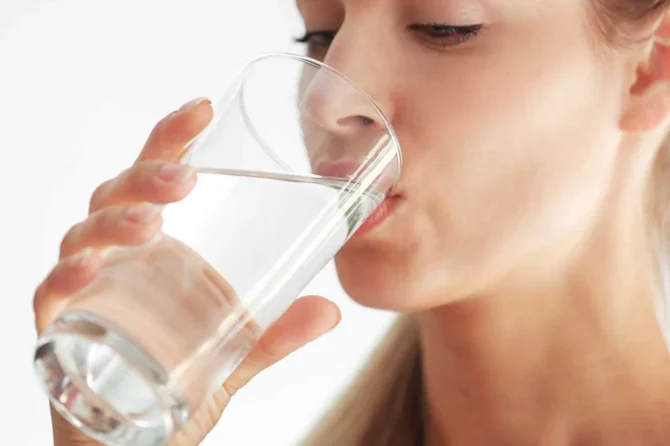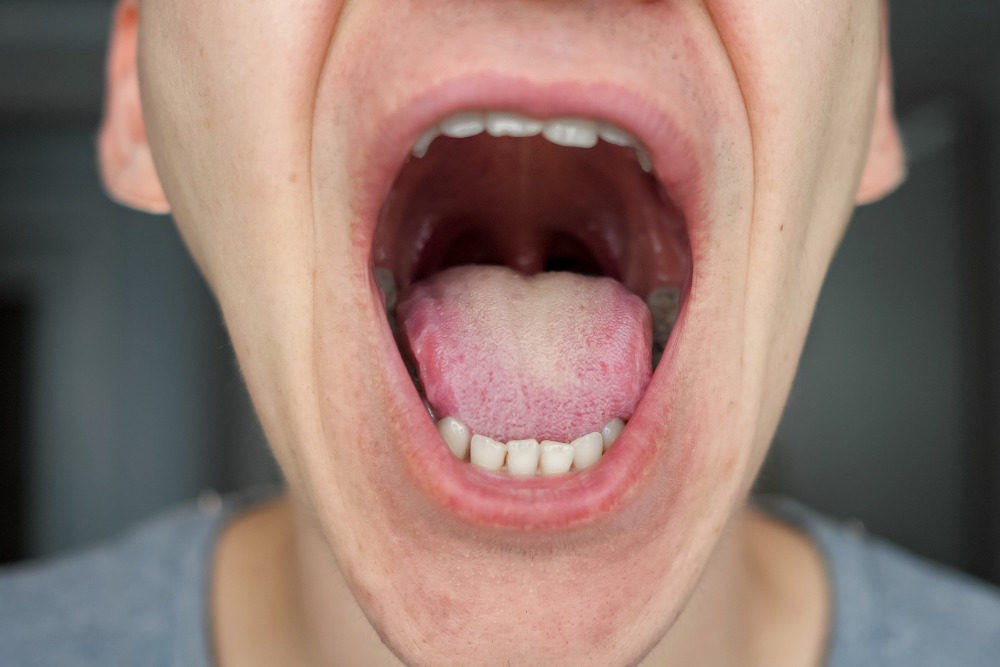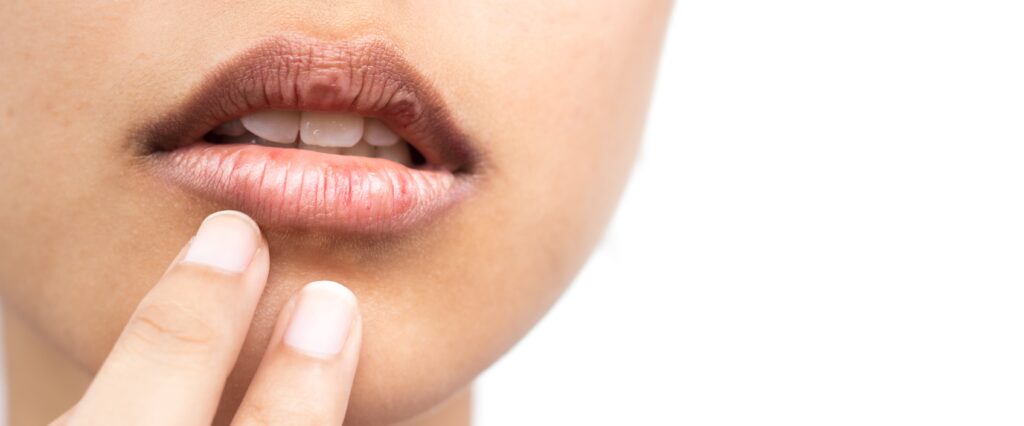
Stay Hydrated & Healthy: Treating Dry Mouth Related to Covid
Understanding Dry Mouth as a Symptom of COVID-19
In the midst of so much uncertainty related to the novel coronavirus, it is important to understand the various symptoms associated with the virus, including dry mouth. Dry mouth, also known as xerostomia, is a condition in which the saliva glands in the mouth do not produce enough saliva, causing the mouth to feel dry and uncomfortable. It is also an indicator that someone might have been infected with COVID-19.
In order to gain a better understanding of dry mouth as a symptom of COVID-19, this guide will cover the following topics:
- Overview of COVID-19
- Dry Mouth as a COVID-19 Symptom
- Shared Symptoms of COVID-19
- Impact of Dry Mouth
- Causes of Dry Mouth
- Prevention & Treatment
- Dehydration & Dry Mouth
- Diet & Hydration Tips
- Oral Hygiene & Dry Mouth
- Professional Care
- Conclusion
By exploring these topics, we can gain a better understanding of dry mouth as a symptom of COVID-19 and the necessary steps to take for prevention, treatment, and management.
Overview of COVID-19
COVID-19 is a highly contagious respiratory virus that has been spreading across the globe. The virus is spread through human contact and is known to have serious consequences. While some people may have no symptoms or mild symptoms, other can become severely ill and require hospitalization.
Common symptoms of COVID-19 include fever, cough, shortness of breath, muscle aches, loss of appetite, and fatigue. Other, less common symptoms include congestion, runny nose, sore throat, diarrhea, and in some cases, dry mouth.
It is important to practice social distancing, wear a face covering when around others, and wash your hands regularly to help prevent the spread of this virus. Additionally, if you feel ill or present any of the symptoms associated with COVID-19, you should contact your healthcare provider for further advice immediately.
Dry Mouth as a COVID-19 Symptom
Dry mouth is one of the lesser known symptoms of COVID-19, yet it has been studied and documented by medical experts around the world.
On top of causing coughing, fever, body aches, and other more commonly reported symptoms, research has determined that dry mouth may be a potential sign of a COVID-19 infection.
One such study suggests that dry mouth is associated with more severe cases of the infection. Patients experiencing dry mouth were more likely to suffer from sore throat, fatigue, breathlessness, and chest tightness, all of which are common symptoms of COVID-19.
Another study conducted by doctors in India also found that as many as 16% of people with COVID-19 reported experiencing dry mouth.
These findings suggest that although dry mouth is not a well known symptom of the virus, it can indicate whether or not someone may have been infected with COVID-19.

Shared Symptoms of COVID-19
COVID-19 can have many similar symptoms as other illnesses, such as the common cold and influenza. While it is important to be aware of these similarities so that you can identify any potential issues quickly, there are key differences between the symptoms of COVID-19 and those of other illnesses.
The common cold may produce similar symptoms, such as a runny or blocked nose, sneezing, coughing, and sore throat. However, they will usually be milder than those of COVID-19 and will not include a fever or shortness of breath. In contrast, the symptoms of influenza will often be more severe than the common cold but are still different from those of COVID-19.
Influenza may cause a fever, body aches, fatigue, and chest pain. However, it is unlikely to produce the dry cough or loss of taste and smell associated with COVID-19. It is also important to note that COVID-19 can cause anosmia (loss of smell) without any other accompanying symptoms, unlike most other illnesses.
By being able to spot the subtle differences in symptoms, you can more quickly identify any potential illnesses and obtain the correct treatment. In addition, if you experience the shared symptoms of COVID-19 and another illness, it is important to seek medical advice promptly.
Impact of Dry Mouth
Having dry mouth can be extremely uncomfortable, and it can have a major impact on your daily life. Common symptoms associated with dry mouth include a constant feeling of thirst, difficulty in swallowing, cracking of the lips, and even a metallic taste.
Your mouth naturally produces saliva to keep your teeth and gums healthy, as well as to help you digest food. When your production of saliva is reduced, your mouth becomes drier and more vulnerable to bacteria, leading to an increased risk of cavities and gum disease.
Dry mouth can also cause bad breath and make talking difficult. Additionally, you may experience a burning sensation in the mouth, tongue, and throat.
- Constant feeling of thirst
- Difficulty in swallowing
- Cracking of the lips
- Metallic taste
- Increased risk of cavities and gum disease
- Bad breath
- Difficulty talking
- Burning sensation in the mouth, tongue and throat
Causes of Dry Mouth
Dry mouth, also known as xerostomia, can have many different causes. One of the most common causes is dehydration – when there isn’t enough water in your body, your saliva production slows down, leading to dry mouth. Other potential causes include medications like antihistamines, decongestants, and some antidepressants; diseases like Sjogren’s Syndrome; and lifestyle factors like smoking, drinking alcohol, and using certain drugs.
It’s important to note that dry mouth can also be caused by COVID-19. While it’s not one of the classic symptoms, a recent study by The American Academy of Otolaryngology has found that dry mouth may be an indicator of the virus. This means that if you’re experiencing dry mouth, it could be a sign that you should get tested for COVID-19. However, it’s important to keep in mind that dry mouth is also a symptom of other illnesses, so it’s best to speak to your doctor if you’re unsure.

Preventing and Treating Dry Mouth
Having dry mouth is an uncomfortable feeling, and there are treatments available to reduce the uncomfortable effects. The goal of prevention and treatment is to keep the entire mouth moist, which requires a combination of hydration and saliva substitutes.
- Hydrate: The most important thing you can do is to stay adequately hydrated. Proper hydration helps saliva production, which is important for keeping the mouth moist. The majority of adults should be drinking at least two liters of water per day.
- Saliva Substitutes: Over-the-counter products, like artificial saliva, can be purchased at most pharmacies or online. These products can help to increase the moisture in your mouth. In addition, sucking on sugar-free candy or chewing gum can help stimulate saliva flow.
It’s important to note that dehydration can worsen the symptoms of dry mouth. So, if you are experiencing dry mouth, it is important to make sure that you are drinking enough water.
Dehydration and Dry Mouth
Dehydration can have serious impacts on the body, and this is especially true for people experiencing dry mouth due to COVID-19. Not drinking enough water can result in further dehydration, which can lead to even more severe symptoms related to dry mouth. As water helps to keep the mouth hydrated and moisturized, a lack of it can exacerbate the already uncomfortable effects of a dry mouth.
When the body does not receive enough fluids, it can cause several other problems. Dehydration can lead to fatigue, dizziness, headaches, and increased heart palpitations. It can spike the body’s temperature, giving the user a fever-like feeling, as well as dry out the lips, skin, and eyes. These effects can make it difficult for someone suffering from dry mouth to get relief.
It is essential to understand that dehydration can worsen the symptoms of dry mouth due to COVID-19, making it increasingly uncomfortable and inconvenient to deal with. Proper hydration can work to reduce these symptoms, but if someone is dehydrated, they will continue to experience discomfort until they increase their water intake.
Diet & Hydration Tips
Dry mouth can be a bothersome symptom of COVID-19 and other illnesses. Fortunately, there are some simple dietary and hydration tips that can help to alleviate this symptom. Here are some pointers:
- Drink plenty of water throughout the day. Try to drink at least 8 glasses of water every day.
- Avoid drinks that can be dehydrating, such as caffeine, soda, and alcohol.
- Add moisture to your diet with smoothies, shakes, soups, and other liquids.
- Eat moist foods and avoid crunchy or dry snacks.
- Chew sugarless gum or suck on a hard candy to stimulate saliva production.
- Consume high-fiber foods (like oatmeal, apples, and carrots), as fiber helps produce saliva.
When dealing with dry mouth, it is important to make sure you stay hydrated and avoid foods that can make your symptoms worse. Following these tips can help you manage your dry mouth symptoms.
Oral Hygiene & Dry Mouth
Having dry mouth can be an uncomfortable and time consuming condition. Taking care of your oral hygiene when experiencing dry mouth is even more important than usual. Here are a few tips to keep in mind:
- Drink lots of water throughout the day to stay hydrated and flush out your mouth.
- Chew sugar-free gum or suck on sugar-free candy to increase saliva production.
- Rinse your mouth with a saltwater solution several times a day.
- Brush your teeth after every meal, using a soft bristled toothbrush and toothpaste without added flavors or perfumes.
- Floss daily to remove food debris and plaque from between your teeth.
- Use an alcohol-free mouthwash to reduce bacterial growth.
- Visit your dentist regularly for professional cleanings and exams.
These simple steps can help reduce the incidence and severity of dry mouth. It is important to talk to your doctor or dentist if dry mouth persists as it could be a sign of a more serious underlying condition.
Professional Care
If you have a severe case of dry mouth, it is essential to seek medical attention. Everyone experiences the symptoms of dry mouth differently and for some individuals, it can be a sign of a more serious underlying issue. You should contact your doctor or healthcare provider if:
- Your dry mouth persists despite trying home remedies
- You experience other symptoms in addition to dry mouth, like fever, fatigue, or difficulty breathing
- The condition worsens even after drinking lots of fluids and seeking proper hydration
It is also important to note that dry mouth that occurs as a result of COVID-19 could also be a sign of dehydration. If left untreated, dehydration can lead to a number of health complications. It is therefore important to seek medical attention especially if you are experiencing extreme thirst, a rapid heartbeat, lightheadedness, dizziness, fainting, confusion, or any other symptoms that could be related to dehydration.
Conclusion
The information in this guide provides a useful overview of dry mouth as a symptom of COVID-19. It is important to understand that dry mouth can be an indicator of having the virus, and it is also important to take measures to prevent and treat it. Dry mouth is not only uncomfortable, but can lead to further complications if left untreated. Be sure to stay hydrated, practice good oral hygiene, and consult with a medical professional if needed.
In summary, dry mouth is a common symptom of COVID-19 and should not be taken lightly. Understanding the causes, prevention, and treatments of dry mouth are essential for people who have been exposed to or contracted the virus. Therefore, it is important to be aware of the signs and take the appropriate action to keep your mouth in good health.
What is Dry Mouth as a Symptom of COVID-19?
- Q: What is dry mouth as a symptom of COVID-19?
A: Dry mouth can be a symptom of COVID-19. It is caused by the body being unable to produce enough saliva due to either the virus or dehydration, leading to constant thirst, difficulty swallowing, cracking lips, and a metallic taste. - Q: What are some shared symptoms between COVID-19 and other illnesses?
A: Some shared symptoms between COVID-19 and other illnesses include coughing, sore throat, fever, loss of taste or smell, and muscle aches. - Q: What potential causes of dry mouth should I look out for that aren’t related to COVID-19?
A: Potential causes of dry mouth include certain medications, smoking, stress, or age-related changes. - Q: What methods can be used to prevent and treat dry mouth related to COVID-19?
A: Drinking plenty of water, using over-the-counter saliva substitutes, avoiding sugary snacks and beverages, and avoiding tobacco products can all help prevent and treat dry mouth related to COVID-19. - Q: How can dehydration worsen dry mouth?
A: Not drinking enough water can result in dehydration, which can worsen symptoms of dry mouth by making the body’s saliva production even more depleted. - Q: What dietary and hydration advice should be followed while dealing with dry mouth?
A: People dealing with dry mouth should drink plenty of water throughout the day, avoid spicy foods, and stay away from sugary snacks and drinks. Additionally, tea, yogurt, nuts, and cheese help to increase saliva production. - Q: When should medical intervention be sought for dry mouth?
A: Medical interventions should be sought if dry mouth persists for three weeks, if bleeding or pain is noticed when brushing/flossing, or if there is any sign of infection.
